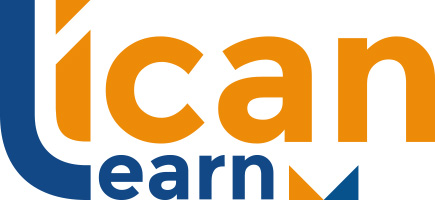Financial counselling is a specialist service, assisting people faced with debt and other financial issues.
This work requires:
• Specialist paralegal skills and competencies related to a broad variety of areas including credit and debt management, legal remedies for financial difficulty and hardship across a range of areas including social security and income entitlements, banking, taxation, debt or harassment, bankruptcy and many other areas including consumer rights. This work requires a solid understanding of the ethics and principles of social justice.
• Solid understanding of social and systemic issues that impact people’s ability to manage situations of difficulty and hardship and ability to use the legal context for consumer advocacy.
What is Skills Recognition?
Skills Recognition is the general term given to a formal assessment process that measures the candidate’s skills and knowledge from previous study, training, work, or life experiences against the outcomes of the course in which they require a qualification. The 3 categories in which skills can be recognised are:
• Recognition of Prior Learning (RPL)
This is a process which acknowledges that people learn in many ways and that learning may have been obtained through formal learning, non-formal or informal learning or a combination of all. The candidate’s skills, training and experiences are assessed against the requirements of the qualification they require.
• Recognition of Current Competence (RCC)
This is a process through which the candidate may need to be re-assessed against a qualification they already have, to make sure that their competence is current. This is particularly relevant for licensing authorities.
• Credit Transfer
If the candidate has completed accredited or formal training previously or at another registered training organisation, ICAN Learn will recognise the units of study and associated competence, giving the candidate a credit transfer for the same units in the qualification they apply for. The unit codes must be identical to those in the course the student enrols in to be granted CT.
What is Competence?
Competence is the demonstration of skills and knowledge that the candidate has gained through life and work experiences as well as any training they have successfully completed that can be matched against a set of industry performance standards referred to as units of competency. These units are grouped together to form a specific industry qualification. In this toolkit we have grouped related units into clusters.
Qualification Requirements
The Diploma of Financial Counselling CHC51122 comprises 13 core and 4 elective units; the latter 4 are selected by ICAN Learn. These elective units are selected on the basis of consultation with the financial counselling sector and meet specialist skill needs for financial counselling practice. ICAN Learn can only provide skills recognition for elective units for which it has assessment expertise.
Overview of the Skills Recognition Process
Get Started
Once enrolled with ICAN Learn the candidate completes the preliminary self-assessment form here: https://forms.office.com/r/QCZUGKURR9
Once submitted, an ICAN Learn assessor will contact the candidate and advise them of the next steps which includes gathering evidence.
Gather Evidence
Gather information for yourself that you can produce to verify your skills, knowledge, and experience. Evidence can take many forms, including:
• Your resume
• Position description
• De-identified copies of documents you have completed at work
• Portfolio of workplace documents
• USI transcripts
• Certified academics transcripts or qualifications from previous study
• Third-party reports
• Candidate statements
There are several broad approaches that an assessor can consider in applying a recognition process.
These are:
• Real work / real time activities, including direct observation and third-party reports.
• Questioning, including oral and written.
• Portfolios that include collections of evidence compiled by candidates.
• Resume (current).
*Persons wanting to apply for skills recognition for CHCFIN006, CHCFIN007, CHCFIN008, CHCFIN009, CHCFIN010 and CHCLEG002 are advised that these units are core to the work of financial counsellors and are generally not considered for skills recognition. These units do not exist in any other qualification, nor do they have equivalent units in other training packages.
Anyone practicing as a financial counsellor must have current membership with a relevant financial counselling peak body, which includes having or studying the Diploma of Financial Counselling in which these are core units. CHCLEG002 will only be considered where this unit with the same code has been achieved in a previous qualification, in which case it is noted as a Credit Transfer.
Please contact administration@icanlearn.edu.au if you have any questions regarding the Recognition of Prior Learning process.


